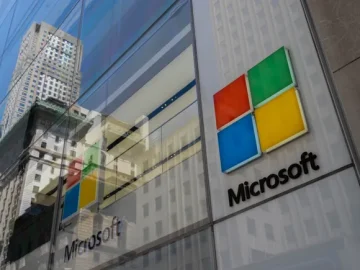On Tuesday, July 16, the Greensboro City Council accepted a $50,000 grant from the NC Department of Environmental Quality for what may seem like an innocuous program to many, but one that might be very alarming to privacy advocates.
The city is installing artificial intelligence software and hardware on some of the city’s recycling trucks – which will use video monitoring, photography and very precise geo-location tags to find those people who are violating the city’s recycling rules.
According to materials submitted to obtain the grant, “Each truck will be equipped with a high-powered GPS tool, an AI-powered camera, and an onboard computer.”
The AI software will identify the trash as it’s dumped into the truck to determine if the contents of the recyclable bin include non-recyclable materials. The location tags for each bin dumped into each truck will let the city know exactly which households or businesses are in violation of the city’s disposal rules.
In this first phase of the program, the city is putting the cameras and software on three city trucks collecting recycling; however, if considered successful, the Greensboro City Council could expand the program in the future.
AI software has become so powerful and fast that the identification accuracy of this particular waste technology is said to be over 99 percent.
According to information about the program, while recycling violations may be hard to detect by human inspectors “at first glance,” the AI software “will inspect a cart’s entire contents.”
So don’t try and fool the city by burying non-recyclables deep down in your container.
While many see this as a great thing because it will help identify and alert city waste officials as to where the problems are originating from, those who worry about the continuing intrusion of artificial intelligence into personal privacy may be dismayed to learn that their recyclable bins are now the focus of AI video cameras that could conceivably sort out what a person is buying, consuming, drinking or reading.
There is absolutely no reason to believe that this is in any way a program that’s meant to “spy” on residents (other than to find the recycling rules offenders) – but there is every reason in the world to believe that these types of technology initiatives expand over the years and end up being used for purposes that were never intended.
Amazon Alexa devices weren’t meant to preserve statements to be used as evidence in murder cases, but that doesn’t prevent that from happening.
One current privacy concern is the following statement:” “Postcards will display an image of non-recyclable items in a resident’s cart alongside the campaign message(s).”
The Rhino Times is currently looking into the specifics of this practice, but one question that arises might be, “Will of a relapsed alcoholic hiding that fact from his wife end up having to explain to her why there’s a postcard in the mail with a picture of an empty glass bourbon bottle in their trash?”
There’s a lot to be learned here, but it sounds, at least from the description in the literature, as though a fully visible photograph of some of a person’s trash may be traveling from the city, through the postal services, to a house, in full view of everyone in the process – including anyone in the household who sees the mail. Since people often dispose of highly sensitive materials in their recyclable bins, one hopes the city is considering what protections must be put in place to mitigate these types of privacy concerns.
Those who worry about government overreach might also be concerned about the fact that many good AI systems can, already, with lightning speed, take in, recognize, categorize and record, any text that passes in front of its cameras. While that is nothing to worry about right now, it is something to consider for the future.
While certainly not the intent of the current program – and there’s no reason to think the city wishes to spy on its citizens – it’s not hard to imagine a situation in which video or photographs from the new program might be used to solve crimes by identifying when and where a piece of evidence was disposed of.
Plans for the year, however, only call for the city to use the equipment and software from Prairie Robotics Platinum Software – at a cost of $10,800 per truck per year – to send notices to people who are breaking recycling rules and also to identify parts of the city where non-compliance is most rampant so that recyclable education campaigns can be targeted to specific communities.
According to information included in city documents, “The proposed program is divided into 13-week quarterly campaigns. Each campaign will use insights from contamination flagged by the AI software. Residents will have their recycling inspected by AI about six times per quarter (due to bi-weekly recycling collections) and receive personalized feedback regarding the contents of their recycling carts. The first 10 weeks of each campaign will focus on monitoring the system for quality control. In the final three weeks, staff will regroup, design, or edit postcards as needed, and plan for the next campaign.”
The city also notes that “Contamination reduction outreach programs play a crucial role in informing residents about the consequences of contamination and promoting behavioral change.”
The City of Greensboro is providing a match of $10,000 to cover the full cost of the hardware, software, and to send out postcards to households that are offenders.
The program, which is ramping up now for the first “education campaign” for offenders, will run from now until mid-September.
That will be followed by other campaigns with a report on the results of the program provided at the end of June, 2024





